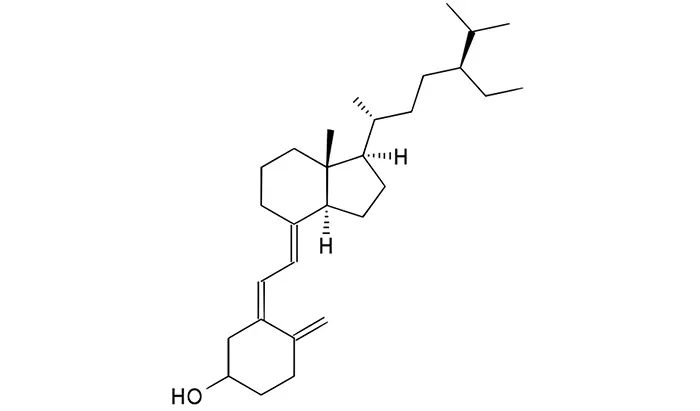Calcipotriene (Vitamin D)
Skin Conditions
Calcipotriene is one of a number of synthetic drugs that mimic the action of vitamin D, the chemical structure of which is shown here.

Its main use is as an ointment in the treatment of psoriasis. Vitamin D is naturally produced by the body when the skin is exposed to sunlight and plays a major role is calcium homeostasis and maintaining bone health.
For this reason a study was launched to investigate the use of synthetic vitamin D in the treatment of osteoporosis – a chronic condition that leads to thin and brittle bones. Calcipotriene’s efficacy in the treatment of psoriasis was actually discovered by accident during the course of this trail.
Vitamin D, while originally viewed simply as a regulator of bone and calcium metabolism, is more and more being recognized as an influential molecule in many different organ systems and biochemical pathways.
The actual mechanism of calipotriene in the treatment of psoriasis is unclear, but it is clear that it is a very useful drug for this purpose. Almost all patients with psoriasis can expect an improvement in the appearance of their skin lesions, though complete resolution is considerably rarer.
Furthermore, its side effect profile is quite mild, making this an excellent drug to be used in the long term and in combination with other drugs.
Side effects include mild skin irritation, increasing sensitivity to UV light, and very rarely some changes in skin pigmentation. Patients using this drug should have their blood calcium levels checked frequently to avoid hypercalcemia – a condition in which the amount of calcium in the blood is abnormally elevated.
If you suffer from psoriasis it is very likely that you would benefit from a prescription of calcipotriene. Make an appointment with your dermatologist for evaluation and treatment.






























